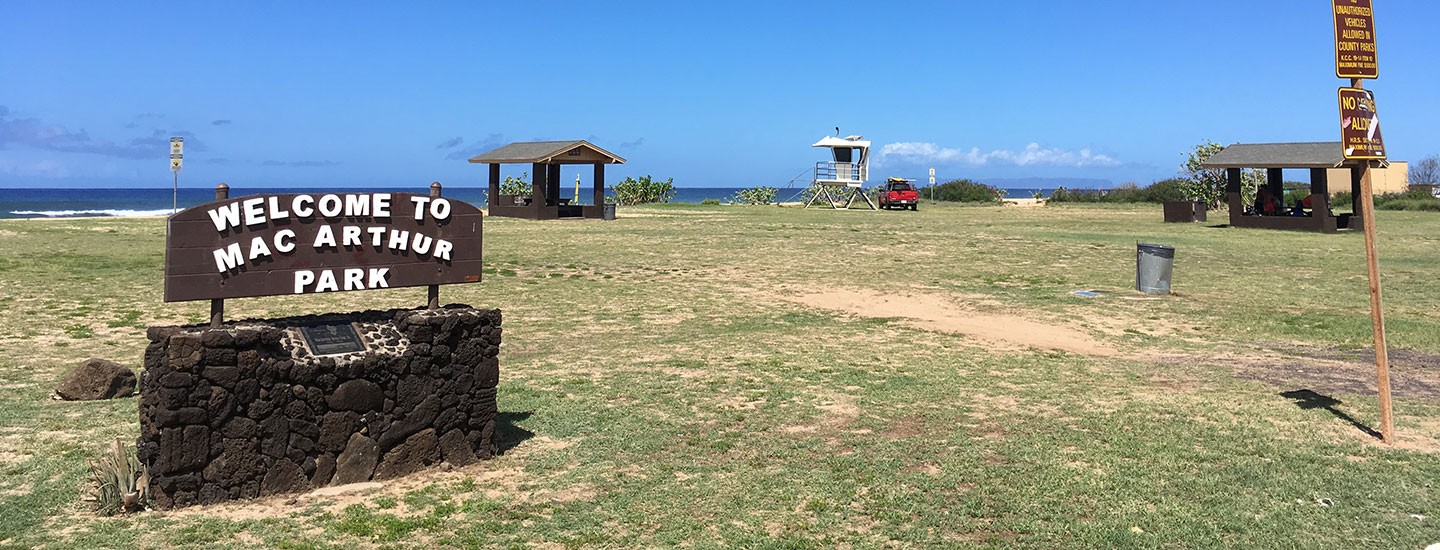
The Surfrider Foundation successfully sued to address ongoing water quality violations along Kauaʻi’s West Side, including Polihale State Park and Kekaha Beach Park. United States District Court Judge Derrick K. Watson issued an order on July 9, 2019 granting Surfrider’s motion for summary judgment with respect to our Clean Water Act claims. The court ruled that the Defendant, Agribusiness Development Corporation,is violating the Clean Water Act (“CWA”) for discharges from the drainage ditches, and that it must obtain a permit and limit pollution levels.
Hawaii Agribusiness Development Corporation (“ADC”), which is a state agency under the Hawaii Department of Agriculture created in 1994 and charged with transitioning Hawai‘i’s agriculture industry from sugar and pineapple to diversified agriculture. In 2003, management of 12,500 acres of agricultural lands in the former sugar plantation area of Kekaha were transferred by governor’s executive order from the State of Hawai‘i Department of Land and Natural Resources (DLNR) to ADC. The lands include two surface water irrigation ditch systems and forty miles of unlined, earthen drainage ditches that add pesticide-laden sediment to the watershed, leading to murky brown waters along Barking Sands and MacArthur beaches. In July 2015, the agency decided not to renew their permit for their 40-mile drainage ditch system. Meanwhile, the effluent produced by this site is known to contain 22 restricted use pesticides (“RUP”s).
On July 25, 2016, after ADC continued to operate out of compliance with the law, Surfrider Foundation, Na Kia‘i Kai, and Pesticide Action Network, as represented by Earthjustice, sued Hawai‘i’s ADC for violating the Clean Water Act. The lawsuit was brought to address their failure to seek a National Pollutant Discharge Elimination System permit (“NPDES”) for discharges of polluted water that reach the Pacific Ocean and contaminate the nearshore ocean waters of west Kaua‘i. Each day, the state agency allowed the discharging of millions of gallons of waters contaminated with pesticides, sediment, and heavy metals from the drainage ditch system it operates on the Mānā Plain. The affected Mānā Plain borders the Pacific Ocean for approximately nine miles and the adjacent ocean waters are used extensively for recreation, including fishing, swimming, surfing, and boating. In our complaint, we stood alongside other community groups’ to allege federal Clean Water Act violations against the ADC, and violation of the public trust under the Hawai‘i Constitution against ADC and the Department of Health.
This week, the court found liability under the CWA and ruled that the Defendant had no justifiable reason to cease permitting of discharges, after decades of previous permitting and compliance of this area. The Defendants tried to reclassify their operations from a point source to a Water of the United States so that they could use the Water Transfer Rule to avoid liability. However, the court found liability under the CWA and noted that reclassification of the system so that it would not need a permit (1) “does not comport with the history of the System’s use”, (2) “is not justified by any intervening change in law or relevant change in circumstances,” and (3) “undermines the purpose of the CWA.” (Order re: Summary Judgment and Dismissal at p.15)
“The ditch system is, for all intents and purposes, an open sewer that dumps untreated waters into the ocean on a daily basis,” said Earthjustice attorney Kylie Wager Cruz. “This is a blatant violation of the Clean Water Act and can’t be squared with the law’s purpose to clean up the nation’s waters. We are thrilled that the Court applied the letter and spirit of the law in ordering the agency to obtain a permit that will include critical safeguards to make these waters in West Kauaʻi safer for people.”
“The ditches empty directly into the Kinikini surf break,” said Surfrider Foundation member Gordon LaBedz. “Test after test shows the ditches contain pollutants that are harmful to people and our precious ocean ecosystem.”
Although our public trust arguments were dismissed on the claim of sovereign immunity, the success in summary judgment on the Clean Water Act claims means the ADC is out of compliance with federal law and will have to act to address the violations.
